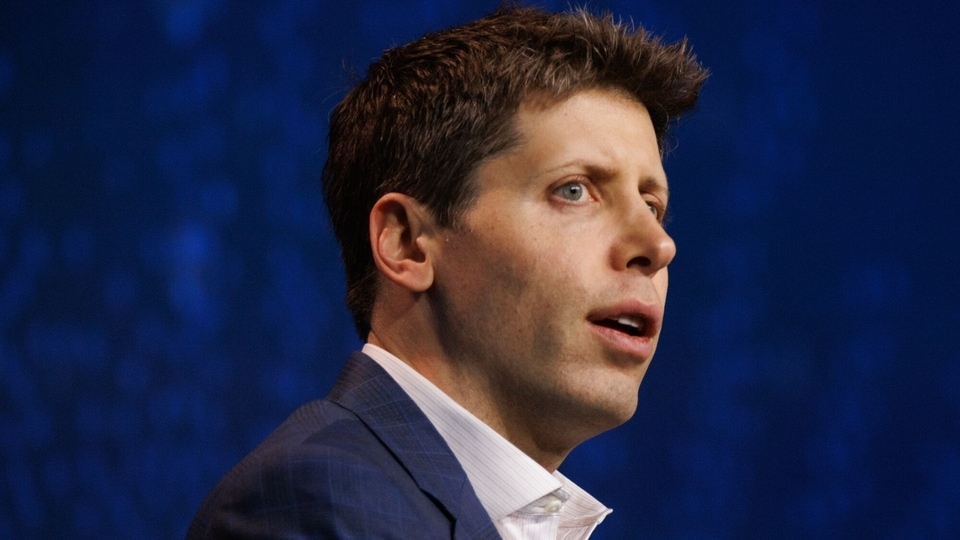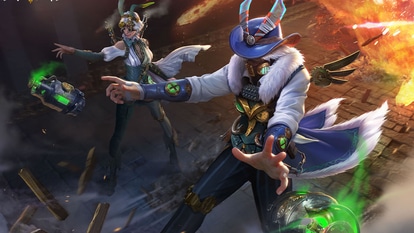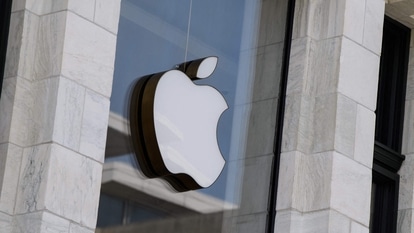Sam Altman To Whitney Wolfe Herd, The Silicon Valley Founder-CEO Is No Longer Untouchable
What happened to OpenAI's Sam Altman, Bumble's Whitney Herd indicates that, profitability becomes a priority at startups, pendulum is swinging back from the “visionary” founder to the professional.

When Bumble Inc. announced that its founder, Whitney Wolfe Herd, would step down as chief executive officer, analyst and press reports painted her as a “great visionary.” Her successor, former Microsoft Corp. and Salesforce Inc. executive Lidiane Jones, who took on the job last week, got dubbed a “strong operator.” This has long been the plight of the professional CEO. They are the boring “tech industry veteran” while the founder they succeed gets to be the “high-level thinker.”
If it's any consolation to the former group, boring is in high demand these days. In the last year or so, along with Bumble, a slew of companies and startups including Lyft, Slack,(1) Cruise and Stitch Fix have all had high-profile founders take a step back to make room for “more seasoned” executives.
We are now on WhatsApp. Click to join.
The departures are part of a broader C-suite exodus across US business: A record number of CEOs stepped down last year. Chalk some of it up to exhaustion. It has never been so difficult and so complicated to run a company, with supply-chain woes, geopolitical turmoil, the war on ESG and “woke” capitalism, rapidly changing consumer habits, the disruption caused by new technology like AI and the battle against employee burnout and disengagement.
But what's striking about the CEO exits in startup land is how antithetical they are to a long-held Silicon Valley doctrine: Under no circumstances do you ever get rid of a founder. It's an ethos that gained traction thanks to venture capital firm Andreessen Horowitz, which grew its business and reputation on the idea that founders should be CEOs to maintain their companies' vision and mission.
As the boom times come to an end, VCs seem more willing to trade a little less vision for a little more profit. The struggle is not only that the people who can deliver on these two objectives are rarely one in the same; it's also that the gap between what it takes to start a company and run one has never been wider. “The environment is a lot more dynamic, and skill sets are becoming obsolete faster,” Christopher Bingham, a professor at University of North Carolina's Kenan-Flagler Business School, told me.
Some boards are flat-out ousting their founders, like OpenAI's Sam Altman, who in a whirlwind five days managed to win back his job. But in many cases, founders aren't so much being pushed or nudged aside as they are opting out as they look around at a grim landscape. The New York Times has reported that more than 3,000 private venture-backed US companies went out of business last year, global M&A hit a 10-year low, and IPOs were down 25% year-over-year. It's never been harder to raise capital, and founders are facing more scrutiny from their boards. Carrying out the soul-sucking cost cuts that are being asked of them is not what they signed up for. “For some leaders, it's way more fun to be a peacetime CEO picking the flavors of kombucha at the bar,” Christa Quarles, CEO of software company Alludo, told me.
The data that's out there suggests replacing a founder isn't always such a terrible thing. A recent analysis from The Economist found that between 2018 and 2021, companies led by founders in the BVP Nasdaq Emerging Cloud Index outperformed those that weren't by about 50%. But by the beginning of 2022, that edge had evaporated. And preliminary research conducted in part by UNC's Bingham shows that while a founder-CEO was tied to a 10% higher company valuation at IPO, the value of a founder in the CEO job disappeared about three years after going public and then actually eroded the value of the company longer term. “Our data provides strong evidence to suggest that there is a shelf life to the founder-CEO — and it's shorter than many might hope,” Bingham and his co-authors wrote.
We only have to go back a few decades to see what life might look like if founders weren't so untouchable. For a primer, I highly recommend serial entrepreneur and Stanford professor Steve Blank's 2017 Harvard Business Review piece examining how Silicon Valley got to a point where founders have so much power. It used to be that to take a company public, top investment banks would require five profitable quarters of increasing revenue. Blank writes:
To achieve that, companies generally had to be able to sell stuff — not just acquire nonpaying users or build a compelling freemium app. Persuading customers to pay for something involved creating a stable product and organizing a professional sales staff to sell it.
VCs would replace the founder with an executive who could both woo institutional investors as well as put in place real systems and processes to hit the metrics. This “fire-the-founder pattern,” as Blank calls it, was the standard order of business from the 1970s until the early 2000s, when the amount of capital began to outstrip the number of startups worth investing in.
It makes sense then that as profitability once again becomes a priority, the pendulum is swinging back, at least a little bit, toward the professional CEO. In his piece, Blank recommends that companies consider bringing on an experienced chief operating officer to work with a young founder, much like Sheryl Sandberg did with Mark Zuckerberg at Facebook. This dynamic, however, doesn't come without its problems. I've written before about how it's often women who have to play the adult in the room while the male founder-CEO gets to be the boy genius.
Instead, a better path might be the one Bumble is on, where Herd in her new role as executive chairman will focus on the brand's future while Jones gets the CEO title and all of the responsibilities that come with it. It's a dynamic that will work only if Herd can stay out of Jones' way and keep herself from meddling in the day-to-day details — a real struggle for so many founders who stick around their companies after stepping aside as CEO. But if anyone has a shot at doing this complicated and delicate dance, it's going to be the founder of a dating app who knows a little something about how to make relationships work.
(1) Herd is not the first founder that Jones has succeeded. After Salesforce acquired Slack and its co-founder Stewart Butterfield stepped down, Jones was tapped to run the business messaging app.
Also, read these top stories:
The AI Fight of the ages! False and misleading information supercharged with cutting-edge AI that threatens to erode democracy, the World Economic Forum said. Some interesting details in this article. Check it out here. If you enjoyed reading this article, please forward it to your friends and family.
ChatGPT-Maker vs NYT! A barrage of lawsuits in a New York federal court will test the future of ChatGPT and other AI products. Read all about it here. Found it interesting? Go on, and share it with everyone you know.
The Suite Life! Chef-like robots, AI-powered appliances and other high-tech kitchen gadgets are holding out the promise that humans don't need to cook — or mix drinks — for themselves. Jump in and see what's happening here.
Catch all the Latest Tech News, Mobile News, Laptop News, Gaming news, Wearables News , How To News, also keep up with us on Whatsapp channel,Twitter, Facebook, Google News, and Instagram. For our latest videos, subscribe to our YouTube channel.

























